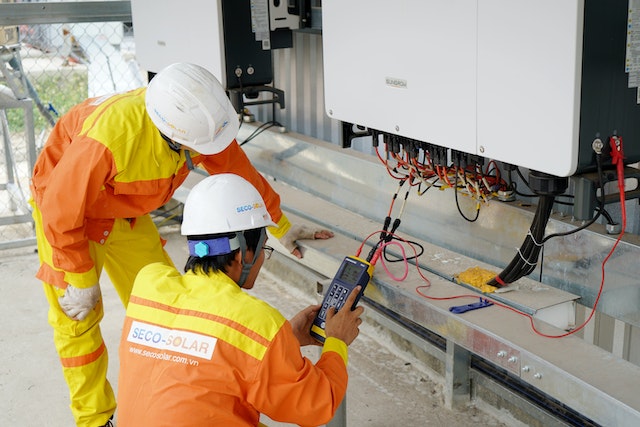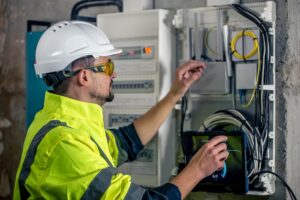Electricians are skilled tradespeople who are responsible for the installation, maintenance, and repair of electrical systems in homes, buildings, and other structures. They play a critical role in ensuring that electrical systems are safe, functioning properly, and up to code. Electricians can work in a variety of settings, from residential homes to commercial buildings to industrial facilities.
In this blog, we’ll cover everything you need to know about electricians, including their job duties, training and education requirements, certifications and licenses, and how to find a qualified electrican melbourne for your specific needs.
Job Duties
Electricians perform a wide range of job duties, including:
- Installing and wiring electrical systems in new and existing buildings, including lighting, switches, outlets, and circuit breakers.
- Diagnosing and repairing electrical problems, such as faulty wiring, malfunctioning circuits, and other issues that may cause electrical components to stop working.
- Maintaining electrical systems, including inspecting wiring and components, testing electrical systems, and replacing or repairing damaged parts.
- Upgrading electrical systems to meet the needs of new appliances, electronics, or other devices that require more power.
- Providing expert advice on energy-efficient upgrades and other ways to improve the safety and functionality of electrical systems.
- Responding to electrical emergencies, such as power outages or electrical fires, and making necessary repairs to restore power and prevent further damage.
Training and Education Requirements
To become an electrician, individuals typically undergo formal training through an apprenticeship program, vocational school, or community college. Apprenticeship programs are the most common path to becoming an electrician and typically last between 4-5 years.
During an apprenticeship program, individuals work alongside experienced electricians to gain hands-on experience in installing, maintaining, and repairing electrical systems. They also take classes in electrical theory, safety procedures, and other topics related to electrical work.
In addition to formal training, electricians must have strong problem-solving skills, attention to detail, and the ability to work safely with electrical components. They must also have a strong understanding of electrical codes and regulations, as well as knowledge of how electrical systems work.
Certifications and Licenses
Depending on the state or country in which they work, electricians may need to obtain certification or licensing to legally practice their trade. Certification and licensing requirements vary by location but typically involve passing an exam and meeting other requirements related to education, experience, and safety.
In the United States, the National Electrical Code (NEC) sets the standards for electrical work and is adopted by many states and municipalities. Electricians must be familiar with the NEC and adhere to its guidelines when installing, maintaining, or repairing electrical systems.
Finding a Qualified Electrician
When hiring an electrician, it’s important to choose a qualified professional who has the necessary training and experience to complete the job safely and up to code. Here are some tips for finding a qualified electrician:
- Check Credentials: Look for an electrician who is licensed, certified, or otherwise qualified to perform electrical work in your area.
- Read Reviews: Check online reviews and ratings to see what other customers have to say about the electrician’s work.
- Get Quotes: Ask for quotes from multiple electricians to compare prices and services.
- Ask for References: Ask the electrician for references from previous customers who have had similar work done.
- Look for Experience: Choose an electrician who has experience working on projects similar to yours.
Conclusion
Electricians play a critical role in ensuring the safety and functionality of electrical systems in homes, buildings, and other structures. They undergo formal training and education to gain the necessary skills and knowledge to work safely with electrical components.




